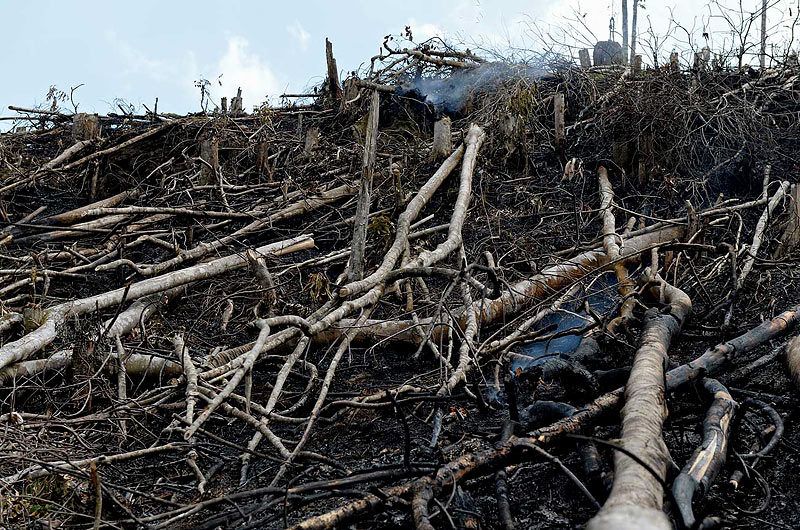It seems we are having a hard time paying sufficient attention to the climate and extinction crises. This is because the causes for the most part move slowly, without the flashy drama that can focus our minds in the midst of 24-hour news cycles and social media distractions. The Netflix film Don’t Look Up cleverly captures our inability to focus on and come together to counter such a common threat. To change this, we must develop a “slow memory” that can help us care about and act on slow change. #Boycottpalmoil #Boycott4Wildlife
Category Archives: Rainforest News
Uncovering secrets of the glasswing butterfly’s see-through wings
Most butterflies sport colourful, eye-catching wings. But some species flit about using mostly transparent wings. Researchers have now uncovered the tricks that one of these — the glasswing butterfly (Greta oto) — uses to hide in plain sight.
Researchers viewed the wings of these Central American butterflies under the microscope. There they spied sparse, spindly scales overlaying a see-through wing membrane. That membrane also has antireflective properties. It’s that combo that makes these insects so stealthy.
13 Reasons Why You Should Boycott Gold For The Yanomami People
Hunger for Gold in the Global North is fueling a living hell in the Global South. Here are 20 reasons why you should #BoycottGold4Yanomami
Video: Slowing deforestation is the key to preventing the next pandemic – but what does that cost?
Les Kaufman, Boston University In a recent journal article, a team of biologists, medical scientists, environmental scientists and conservationists proposed a number of measures to reduce the likelihood of future pandemics, many of which originate with wild animals such as bats. They argue that spending billions of dollars per year – a fraction of theContinue reading “Video: Slowing deforestation is the key to preventing the next pandemic – but what does that cost?”
How forest loss has changed biodiversity across the globe over the last 150 years
Maria Dornelas, University of St Andrews; Gergana Daskalova, University of Edinburgh, and Isla Myers-Smith, University of Edinburgh The Earth’s forests have been changing ever since the first tree took root. For 360 million years, trees have grown and been felled through a dynamic mix of hurricanes, fires and natural regeneration. But with the dawn ofContinue reading “How forest loss has changed biodiversity across the globe over the last 150 years”
Opinion: Seven strategies that offer hope for rainforests
Company policies, new technologies, innovative financing and more are brightening prospects for the tropical rainforests — but time is short. February 18, 2020 — This piece was excerpted from Rainforest:Dispatches From Earth’s Most Vital Frontlines by Tony Juniper, Copyright © Tony Juniper. Reproduced by permission of Island Press, Washington, D.C. The continuing clearance and degradationContinue reading “Opinion: Seven strategies that offer hope for rainforests”






